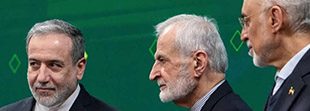“Today, it is time for the government to make a decisive decision about the presence of the military in the economy. If the right decision is not made, those who have military power will also have economic power and will reach the point of taking political power, and this process is not compatible with democracy; it is not compatible with the Imam’s and the Leader’s policies.”
This statement captures Tavakoli’s underlying concern: the fusion of military, economic, and political power in a single institution poses an existential threat to pluralism, accountability, and long-term institutional stability. His criticism was not just a matter of economic policy; it was a political warning about unchecked power.
Civilian Governance and the Legacy of the Revolution
Tavakoli’s critiques were not anti-revolutionary. In fact, he saw his opposition as an act of fidelity to the principles of the Islamic Revolution and the aspirations of Ayatollah Khomeini and the early revolutionary leaders. The revolution, he argued, was not meant to empower armed factions, but to place moral and religious values at the center of governance. That meant civilian oversight, social justice, and protecting the public interest.
He believed that allowing military organizations like the IRGC to dominate construction contracts, import-export licenses, media companies, and even electoral campaigns betrayed that vision. In his view, a revolution born to fight against tyranny and foreign domination should not reproduce the same structures of concentrated power internally.
Tavakoli’s statements carried weight because they came from someone within the conservative camp—not from the reformist opposition or exiled dissidents. His insider status lent credibility to his message and highlighted divisions within Iran’s conservative movement about the role of the military in the state.

